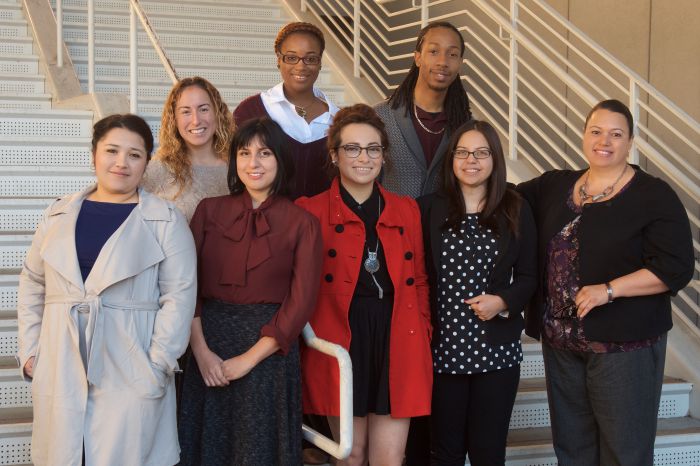
When California State University, Dominguez Hills (CSUDH) alumnus David Turner, III, went to a forum on college affordability in Nashville, Tenn., and posed questions regarding how underrepresented students such as himself fit into the equation, he was a bit astonished to find his inquires dismissed by the panel.
At the time, Turner (’13, B.A., Africana studies) was conducting research with Stella Flores, an associate professor of public policy and higher education at Vanderbilt Peabody College in Nashville, during his summer research project as a student in the CSUDH McNair Scholars Program. Turner and Flores were the only non-Caucasian attendees at the forum.
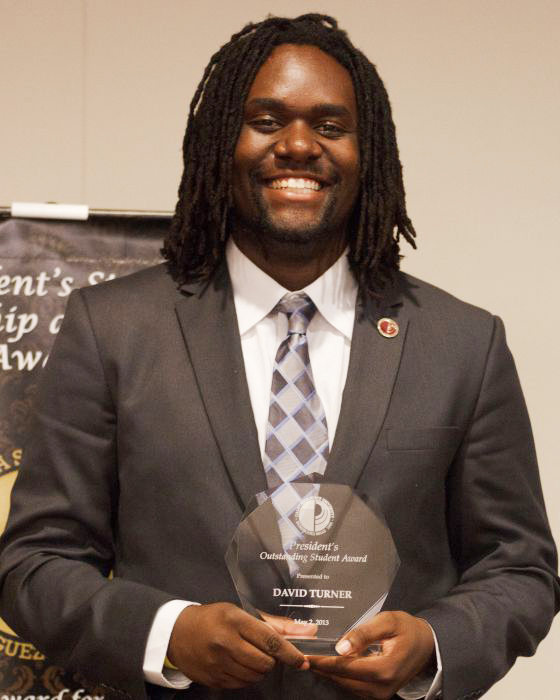
“If we weren’t in the room those underrepresented students wouldn’t have been ‘represented.’ That’s when I realized the importance of pursuing a career in academia,” said Turner, CSUDH’s 2013 Presidential Outstanding Student Award recipient who is pursuing his Ph.D. in social and cultural studies in education at UC Berkeley. “That was a good example of how underrepresented students and communities get marginalized. The scholarship that is devoted to these issues is pathological; it’s not dedicated to research, which in the end is what will uplift these communities, because it is research–like that the McNair Scholars Program offers–that would really address why these problems exist.”
The 2014-2015 academic year marks the 10th anniversary of the federal McNair Scholars Program on the CSUDH campus. Established in the name of Ronald E. McNair, the late NASA mission specialist who perished in the 1986 Space Shuttle Challenger explosion, the program has become a national model for how low-income and first-generation college students from traditionally underserved communities who aspire to pursue advanced degrees can stand out from the substantial crowd applying for graduate school each year.
The program at CSUDH has an impressive 93 percent graduate school acceptance rate. Its success stems from its comprehensive academic support services, such as individualized academic planning and advising, graduate school and fellowship application assistance, faculty mentoring, and in-field research experience.
Turner is one of 128 students who have graduated from CSUDH and moved on to graduate school with the significant academic edge that the McNair Scholars Program provides.
“By participating in the program, McNair scholars receive the training and information to not only be competitive for graduate school, but to succeed once they are there,” said Michelle Martinez, director of the McNair Scholars Program.
Best designed for juniors, the year-long McNair program is also available to sophomores and seniors who have at least one year left at CSUDH.
The 2015-16 McNair scholars are all juniors expected to graduate in spring 2016. They are:
- Kristi Sprowl, health science major and biology minor;
- Wendy Velez, sociology major and health science minor;
- Jaelen Barnett, Africana studies major and criminal justice minor;
- Leah Sanchez, anthropology;
- Christina Arzate, health science;
- Kimberly Serpas, psychology;
- Rosemary Guillen, health science;
- Gabriela Corona, English;
- David Felix, clinical science.
During the spring semester, the McNair scholars enroll in a research methods course that covers the technical steps of developing a research proposal, such as writing, putting together an annotated bibliography, conducting literature review, and learning the types of scholarly research methods they should employ. They also participate in a variety of workshops, seminars, meetings and classes.
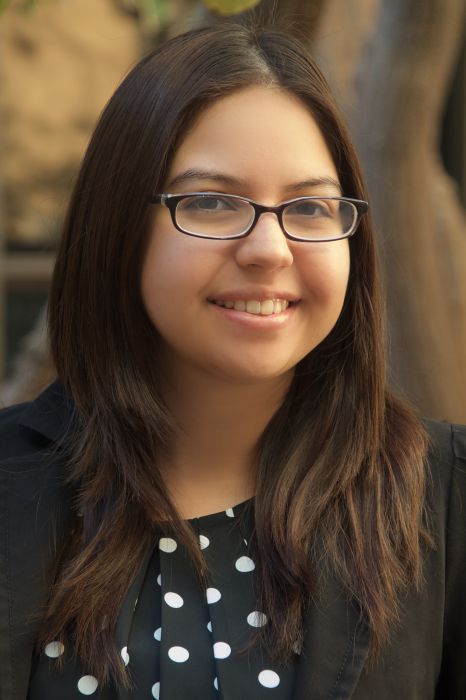
Wendy Velez is a Norwalk resident and the first in her family to attend college. She plans to earn her master’s in public health and would like to attend Boston University, but is still researching the best university to pursue a Ph.D.
“When I asked my professors to write me a letter of recommendation they asked me ‘What for?’ I told them it was for McNair,” said Velez. “They all jumped and said something like, ‘Yes, I’ll do it right now.’ That’s how I knew for sure that the program had to be good.”
Summer Research and Mentoring
McNair scholars also research top-tier universities during the spring to find faculty with summer research programs that best match their collegiate and professional aspirations. Along with their research projects, the students participate in a variety of other activities in the summer, such as GRE test prep, guidance through the steps of applying to graduate school and visits to research universities in the region.
Prior to summer , the McNair scholars are paired with CSUDH faculty mentors whose research also aligns with their interests to receive guidance in the development and implementation of summer research projects with them, or at the universities that have selected them for participation. The universities that many scholars in the past have conducted research at include UC Irvine, University of Michigan, and Columbia University.
Leah Sanchez, who will be the first in her family to earn a college degree, believes the McNair summer research project will help her narrow her academic interests and find which universities best suit her chosen major: cross platform multi-mobile communication.
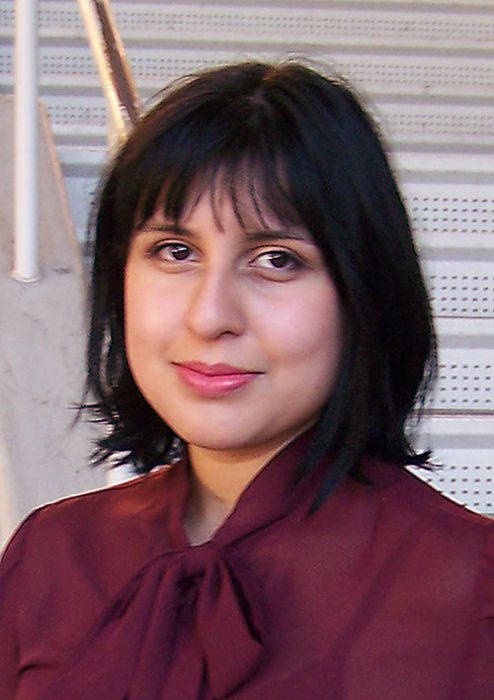
“I’m interested in foreign diplomacy so I’m looking for good universities that offer those types of programs, such as the Harvard Kennedy School,” said Sanchez. “I know that MIT has a very good linguistics program, which is part of the language aspect that I’m very interested in, but they are not necessarily strong in anthropology. UCLA and UC Berkeley do have good programs in that field.”
Sanchez believes that the McNair Scholars Program will have a significant impact on the trajectory of her academic career, particularly the summer research project.
“It’s the summer research program that really helps us get into doctorate programs. These projects are what will teach us the necessary and essential skills that are expected in graduate school,” she said. “I really want to look at communication and technology, and how it operates in foreign nations as opposed to our own, so taking that month of summer classes at a prestigious university to prepare for graduate school is very important.”
After their summer research projects are complete, the students’ CSUDH faculty mentors assist them in preparing a research paper for publication and for presentations at symposiums.
In the fall, when most of the scholars begin their senior year, they start the process of applying to graduate schools. One of the most significant aspects of the McNair Scholars Program is that most of the students who plan to pursue a Ph.D. will not have to pay tuition. The cost is usually paid for or subsidized through teaching assistant, research assistant or other types of fellowships, which the scholars also apply for through the McNair program before they graduate from CSUDH with bachelor’s degrees.
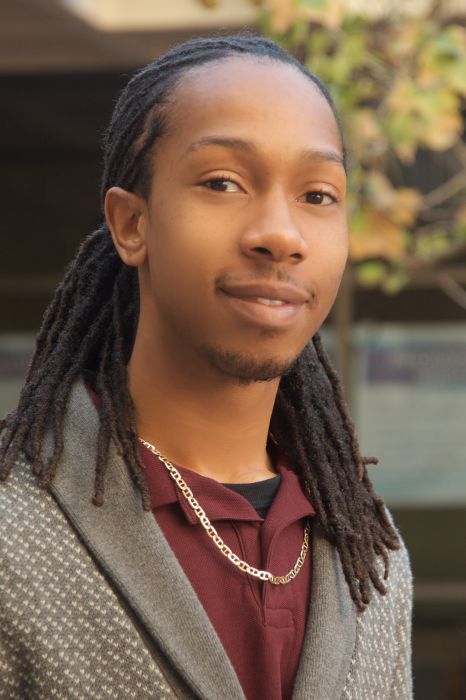
“The McNair Scholars program really helps to level the playing field by providing underrepresented students who are talented enough to go to graduate school the resources to do so,” said Turner. “I feel that’s what McNair really did for me. It really helped me compete.”
Jaelen Barnett, who is originally from San Jose and now lives in the CSUDH dormitories, is exploring schools in California, on the East Coast and in the southern United States, which he believes will provide the best environment for his studies in college administration, restorative justice, and the leadership and political factors that affect minorities within the inner-city. He felt a strong connection to Africana studies when he took his first course as a college freshman.
“It felt like the right fit. It didn’t feel like work. It was like I need to be doing this,” he said. “It’s something that I understand and it helps me to center myself and better my view the world as an African American male. I look forward to taking it to that next level.”